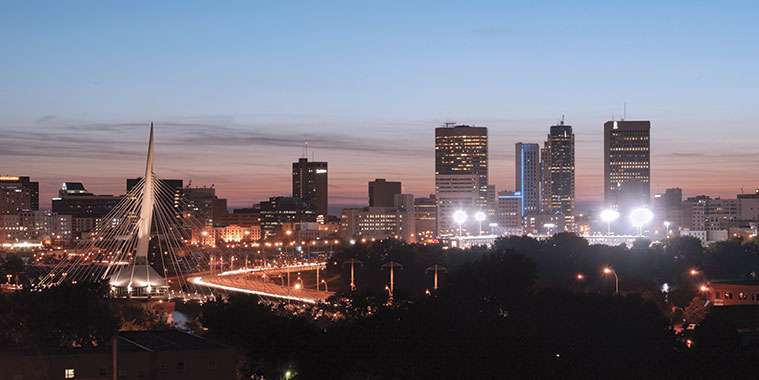By Peter Squire
We had lots to celebrate this past Canada Day — besides our low Covid-19 infection rate. As of July 1, a number of changes were made effective that will make life a little more affordable for Manitobans.
Several tax reductions were announced by the Government of Manitoba, but it is worth highlighting one that remains untouched and affects many Manitobans who want to buy a home — the land transfer tax.
This is a tax on property that REALTORS® continue to advocate on behalf of Manitobans to make less punitive and make home ownership more affordable. This is especially true for first-time buyers, who not only face the daunting challenge of coming up with the necessary down payment under stricter mortgage requirements, but need to save for closing costs that can be significant with our province’s high land transfer taxes.
In Manitoba there is a 2% tax on any property value amount in excess of $200,000. So if you buy a house for $300,000, that $100,000 at 2% equates to $2,000 in land transfer taxes. You will have to pay $1,650 up to the $200,000 amount and a registration fee of $107. Total transfer and registration of title is therefore $3,757.
In other provinces across Canada, provincial governments — and even a large municipality in one case — recognize the important role homeownership plays in our provincial economy as an economic engine that provides stability and wealth-generating opportunities for its residents. Based on a study done by Altus Group Economic Consulting for the Canadian Real Estate Association in October 2019, sales recorded through MLS® systems across the country generated on average $32 billion worth of economic spin-off activity annually from 2016 to 2018. Manitoba’s average sales resulted in $719 million of annual economic activity.
Homeownership is about creating jobs, too. This same study showed 234,015 direct and indirect jobs are created annually by home sales and purchases through Canadian MLS® systems.
To gain a better understanding of where Manitoba sits across the ten provinces with respect to levying land transfer taxes, you can Google the provincial land transfer tax calculator.
A quick outline of the current situation shows the other two Prairie Provinces — which compete directly with Manitoba in attracting and retaining potential first-time buyers to live and raise a family — are considerably less. Saskatchewan’s tax of 0.3% for every $100,000 of property value means a charge of $900 for a $300,000 home purchase. Alberta does not even have a land transfer tax, so to register your title transfer will cost you $110 for the property and another $110 for the mortgage.
Both British Columbia and Ontario, who have some of the highest land transfer taxes in the country just like Manitoba, offer generous first-time home buyer exemptions. In Ontario, first-time buyers get a rebate up to $4,000, so for a $300,000 home it covers the entire $2,975 amount levied at that amount. B.C. offers double Ontario’s rebate, so a first-time buyer will get the full $8,000 rebate if they purchase a home at $500,000, and of course get complete $4,000 tax relief for a $300,000 home purchase.
In Quebec, there is no direct first-time buyer exemption for the $2,948.50 charged for a $300,000 home. However, a first-time buyer is eligible for up to a $750 non-refundable provincial income tax credit. Interestingly enough, the City of Montreal set up their own home ownership program in 2018 whereby renters are incentivized to buy a home. It is quite an involved program, but suffice to say, a family with one child under 18 purchasing their first home will receive full land transfer tax relief for a home up to $360,000 in value.
In the Maritimes, where housing is more affordable like in Manitoba, Prince Edward Island offers first-time buyers full land transfer tax relief for any property up to $200,000 in value. Both PEI and New Brunswick levy a 1% tax rate on the total purchase price amount, so you will pay $3,000 for a $300,000 home.
Newfoundland is lower, at $2,596, though like Alberta, if a buyer is able to buy a home without taking out a mortgage, the transfer or registration fee, as they call it, is $1,298, the same amount as registering a mortgage.
Finally, Nova Scotia does not have its own provincial land transfer tax, though there are municipal land transfer taxes. They vary with major municipalities, such as Halifax and Dartmouth charging the highest rate at 1.5%. Many are 1% or even lower, with the Town of Kentville not charging one at all.
To Manitoba’s credit, the government is taking steps to make life more affordable for Manitobans. A major change has been the reduction of the PST from 8 to 7%, with plans to reduce it further to 6% in 2021. These tax reductions are very significant in helping younger home buyers save money over many years, as they are in acquisition mode to purchase many items to meet their lifestyle needs. A number of these purchases and savings may well be related to buying a first home and all that is associated with it.
Whether new home buyers or existing ones, the PST reduction will be especially helpful on the bigger ticket renovation projects which are part and parcel of owning a home.
Speaking of owning a property, after July 1, residential and business property owners will now be PST exempt for their annual home and business property insurance. July 1 also marks a 10% reduction in vehicle registration fees, a saving that will see vehicle owners in Manitoba receiving $110 million in rebates from Manitoba Public Insurance (MPI) this year.
“I am encouraged by steps the provincial government is taking to make living in Manitoba more affordable,” said WinnipegREALTORS® president Catherine Schellenberg. “I look forward to a future date when land transfer tax relief will form part of the government’s plans to make owning a home more affordable in Manitoba.”
Peter Squire is WinnipegREALTORS® Vice-President, External Relations & Market Intelligence.



